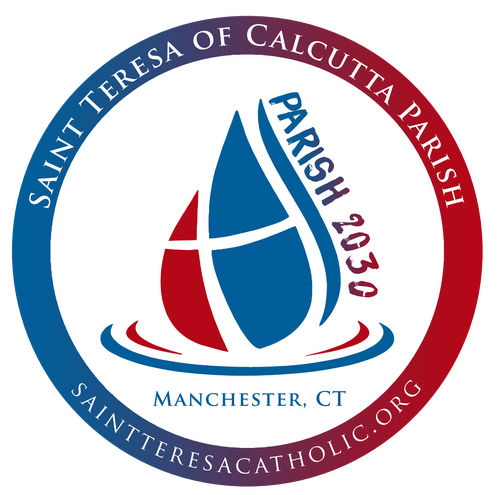Baptism
Initiation Into Faith
Baptism is the beginning of our faith and our gateway into the Church. It is the first of three Sacraments of Initiation (Confirmation and Eucharist being the other two). Through Baptism we are freed from sin and reborn as sons of God; we become members of Christ, are incorporated into the Church and made sharers in her mission: "Baptism is the sacrament of regeneration through water in the word". (CCC 1213)
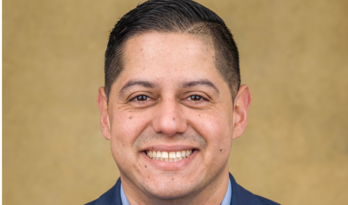
Questions about baptism? Just ask!
Deacon Ramon Guzman, 860 643 2403 ext. 103
Deacon Ramon Guzman, 860 643 2403 ext. 103
Reconciliation
An Opportunity for Renewal
Not only does it the Sacrament of Reconciliation (also known as Confession or Penance) free us from our sins, it challenges us to have the same kind of compassion and forgiveness for those who sin against us. We are liberated to be forgivers. We obtain new insight into the words of the Prayer of St. Francis: "It is in pardoning that we are pardoned."
Jesus entrusted the ministry of reconciliation to the Church. The Sacrament of Penance is God's gift to us so that any sin committed after Baptism can be forgiven. In confession we have the opportunity to repent and recover the grace of friendship with God. It is a holy moment in which we place ourselves in his presence and honestly acknowledge our sins, especially mortal sins. With absolution, we are reconciled to God and the Church. The Sacrament helps us stay close to the truth that we cannot live without God. "In him we live and move and have our being" (Acts 17:28).
Jesus entrusted the ministry of reconciliation to the Church. The Sacrament of Penance is God's gift to us so that any sin committed after Baptism can be forgiven. In confession we have the opportunity to repent and recover the grace of friendship with God. It is a holy moment in which we place ourselves in his presence and honestly acknowledge our sins, especially mortal sins. With absolution, we are reconciled to God and the Church. The Sacrament helps us stay close to the truth that we cannot live without God. "In him we live and move and have our being" (Acts 17:28).
Confession Schedule
- 7:30 - 8 AM, Monday - Friday @ St. James Church
- 8 AM, First Saturday of the Month @ St. James Church
- 4:30 - 5 PM, Monday - Friday @ St. Bridget Church
- 2 - 3:30 PM, Saturday @ St. James Church
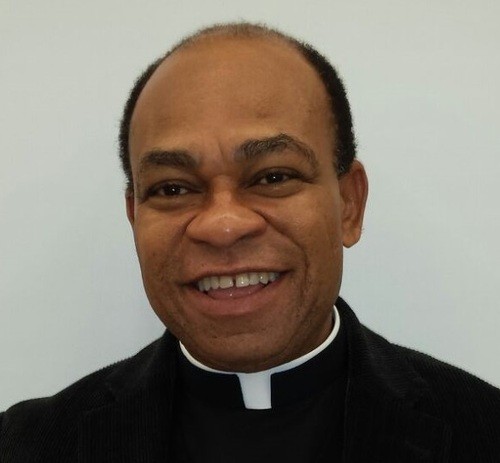
Questions about confession? Just ask!
Fr Matthew Collins, 860 643 2403 ext. 102
Fr Matthew Collins, 860 643 2403 ext. 102
Eucharist
The Body and Blood of Christ
The Holy Eucharist is a sacrament and a sacrifice. In the Holy Eucharist, under the appearances of bread and wine, the Lord Christ is contained, offered, and received.The whole Christ is really, truly, and substantially present in the Holy Eucharist. We use the words "really, truly, and substantially" to describe Christ's presence in the Holy Eucharist in order to distinguish Our Lord's teaching from that of mere men who falsely teach that the Holy Eucharist is only a sign or figure of Christ, or that He is present only by His power. The word "Eucharist" means "Thanksgiving."
Christ instituted the Holy Eucharist in this way: He took bread, blessed and broke it, and giving it to His apostles, said: "Take and eat; this is My body;" then He took a cup of wine, blessed it, and giving it to them, said: "All of you drink of this; for this is My blood of the new covenant which is being shed for many unto the forgiveness of sins;"finally, He gave His apostles the commission: "Do this in remembrance of Me."
Because the appearances of bread and wine remain in the Holy Eucharist, we cannot see Christ with our bodily eyes in this sacrament. We do see Him, however, with the eyes of faith. Our bodily eyes, moreover, do not deceive us when they see the appearances of bread and wine for these appearances really remain after the Consecration of the Mass. For the Catholic Christian, the Eucharist is our communion with the Divine Life.
Christ instituted the Holy Eucharist in this way: He took bread, blessed and broke it, and giving it to His apostles, said: "Take and eat; this is My body;" then He took a cup of wine, blessed it, and giving it to them, said: "All of you drink of this; for this is My blood of the new covenant which is being shed for many unto the forgiveness of sins;"finally, He gave His apostles the commission: "Do this in remembrance of Me."
Because the appearances of bread and wine remain in the Holy Eucharist, we cannot see Christ with our bodily eyes in this sacrament. We do see Him, however, with the eyes of faith. Our bodily eyes, moreover, do not deceive us when they see the appearances of bread and wine for these appearances really remain after the Consecration of the Mass. For the Catholic Christian, the Eucharist is our communion with the Divine Life.
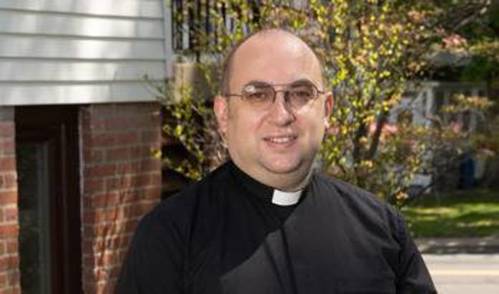
Questions about the Eucharist? Just ask!
Fr Marcin Pluciennik, 860 643 2403 ext. 101
Fr Marcin Pluciennik, 860 643 2403 ext. 101
Confirmation
Sealed with the Gift of the Holy Spirit
In the Sacrament of Confirmation, the baptized person is "sealed with the gift of the Holy Spirit" and is strengthened for service to the Body of Christ. Confirmation deepens our baptismal life that calls us to be missionary witnesses of Jesus Christ in our families, neighborhoods, society, and the world. . . . We receive the message of faith in a deeper and more intensive manner with great emphasis given to the person of Jesus Christ, who asked the Father to give the Holy Spirit to the Church for building up the community in loving service.

Questions about Confirmation? Just ask!
Fr Marcin Pluciennik, 860 643 2403 ext. 101
Fr Marcin Pluciennik, 860 643 2403 ext. 101
Marriage
Unity in Love
"Marriage: the principal and original self-gift is the unitive, mutual self-gift of the spouses to each other. In their marriage promises, the spouses pledge love and fidelity for as long as they live. The transmission of life is a sublime, concrete realization of this radical self-gift between a man and a woman. The mutual married love of man and woman ―becomes an image of the absolute and unfailing love with which God loves man[kind], because as mutual self-gift, it is at the same time creative self-gift. The unitive and the procreative meanings of marriage are joined because they are two aspects of the same self-giving." - USCCB Pastoral Letter
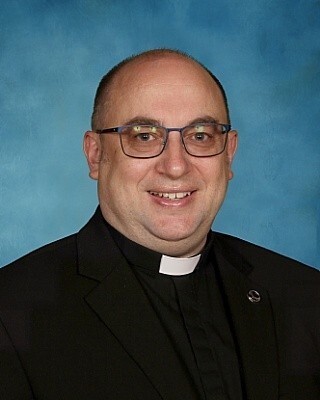
Questions about marriage? Just ask!
Fr Marcin Pluciennik, 860 643 2403 ext. 101
Fr Marcin Pluciennik, 860 643 2403 ext. 101
Holy Orders
Ordained to Serve God
"Becoming a priest or a man or woman religious is not primarily our own decision.... Rather it is the response to a call and to a call of love." - Pope Francis
Those who seek priesthood respond to God's call using the words of the prophet, "Here I am, send me" (Is 6:8). While all who are baptized in Christ share in his mission, the ministerial priesthood shares this through the Sacrament of Holy Orders in a special way. Ordination to the priesthood is always a call and a gift from God.
Those who seek priesthood respond to God's call using the words of the prophet, "Here I am, send me" (Is 6:8). While all who are baptized in Christ share in his mission, the ministerial priesthood shares this through the Sacrament of Holy Orders in a special way. Ordination to the priesthood is always a call and a gift from God.
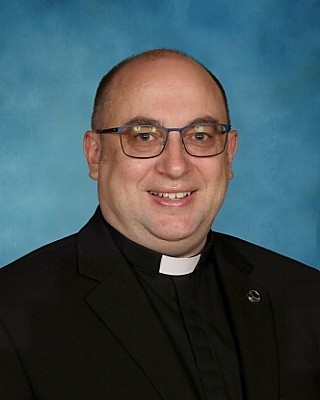
Questions about ordination? Just ask!
Fr Marcin Pluciennik, 860 643 2403 ext. 101
Fr Marcin Pluciennik, 860 643 2403 ext. 101
Anointing of the Sick
Strength and Comfort for the Afflicted
Through the Sacrament of the Anointing of the sick, the afflicted receives spiritual healing and the Holy Spirit's gift of peace and courage to deal with the difficulties that accompany serious illness or the frailty of old age. While we pray for their recovery and hope for the person to be physically healed of their illness, the primary purpose is one of spiritual comfort.
There is no need to wait until a person is at the point of death to receive the Rite of Anointing. An informed judgment about the serious nature of the illness is sufficient.
There is no need to wait until a person is at the point of death to receive the Rite of Anointing. An informed judgment about the serious nature of the illness is sufficient.
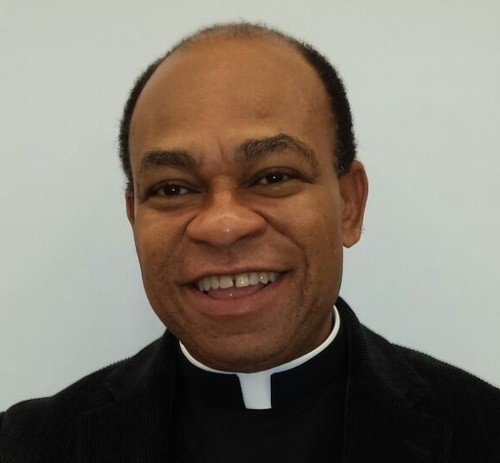
Questions about Sacrament of the sick? Just ask!
Fr Dominic Anaeto, 860 643 2403 ext. 102
Fr Dominic Anaeto, 860 643 2403 ext. 102
